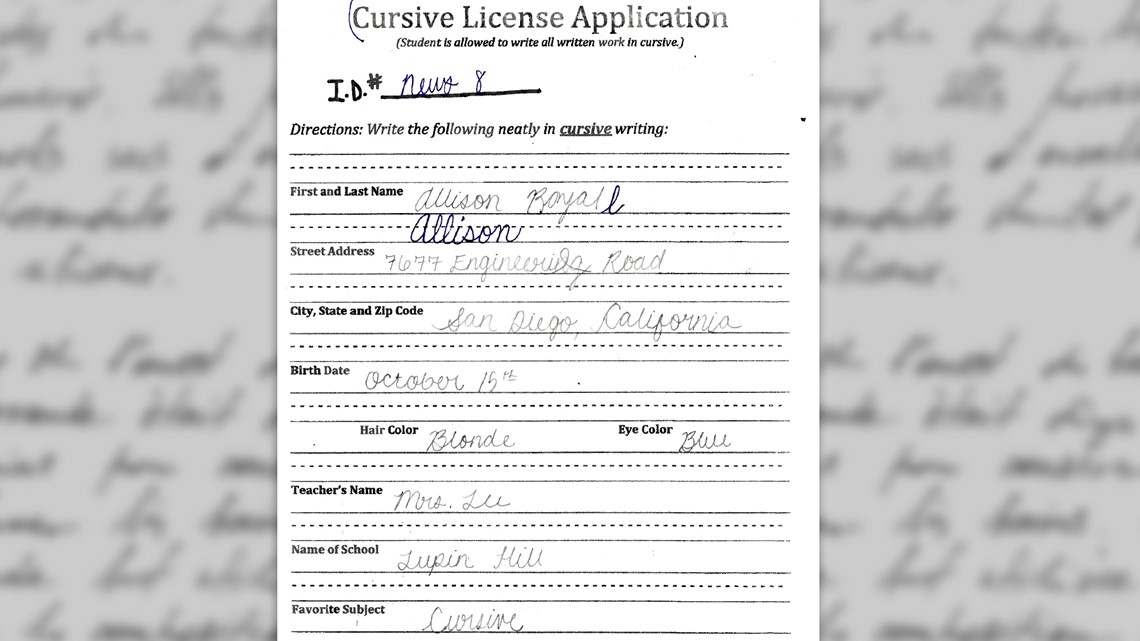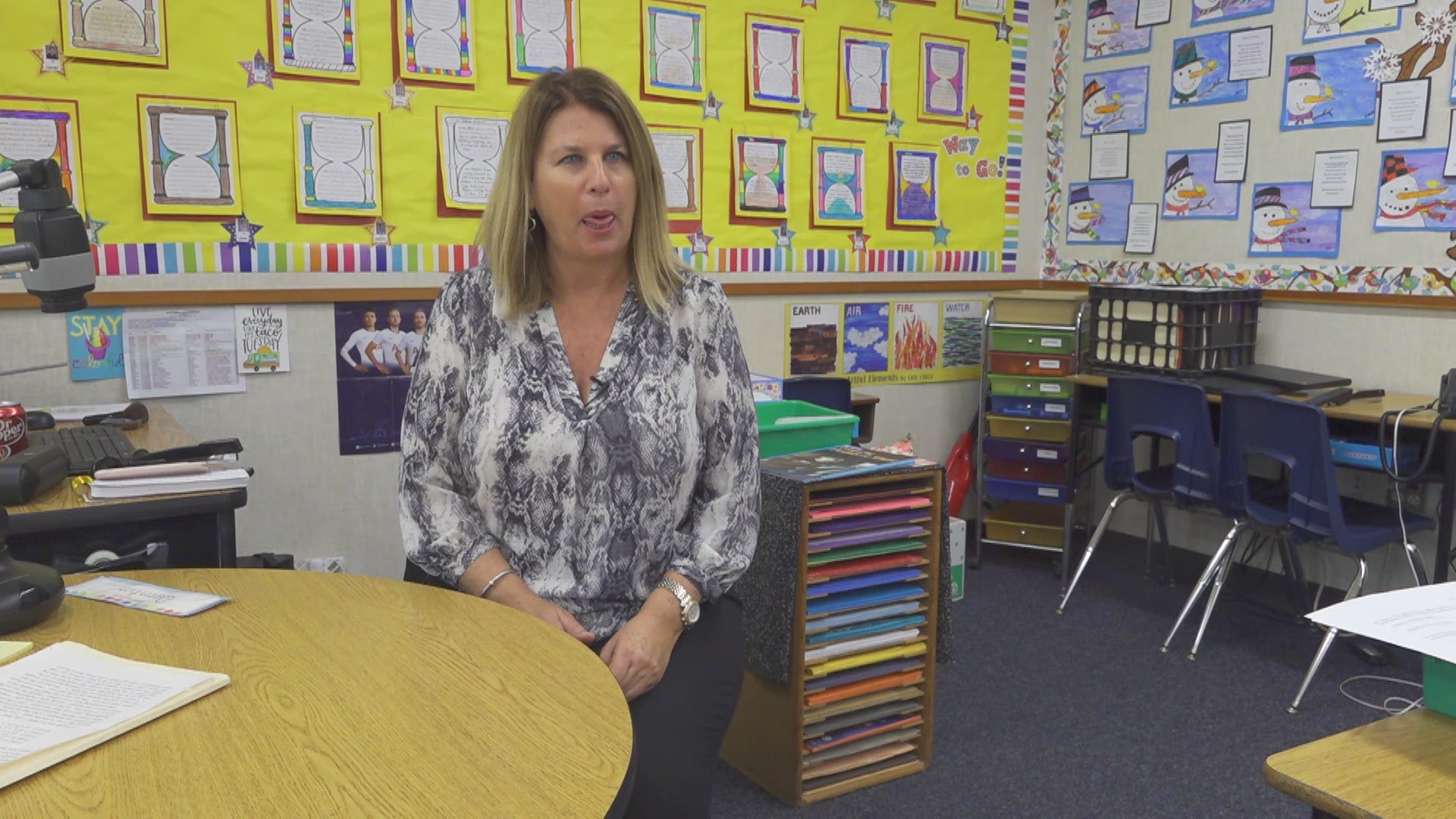POWAY, Calif. — Lisa Lee has been teaching elementary school students for 23 years in the Poway Unified School District in San Diego County. Lee said if she had to do it all over again, she would still be a teacher.
"That' ah-ha' moment, [when] that light bulb goes off, I just want to cry," said Lee. "I mean honestly, I get super, like, emotional when a student finally gets something that they’ve really been trying to achieve.”
Lee is teaching cursive to her third graders, like Madison Stearns.
"It’s fun because it’s not like the normal letters because you get to like connect them and it’s fancy, and cursive was one thing I was really excited to learn in the year," said Stearns.
While Lee has taught students cursive throughout her career, she's seen a shift.
"It used to be something you would spend more time on," said Lee. "I’d spend 30 minutes teaching cursive, and now I actually only spend about 10 minutes [per day]. I introduce a letter per day.”
So far, her students know two letters in cursive.
"H and L," said Stearns.
Some people say cursive comes in handy.
”Because when you’re older and you need to like, sign checks, you need to learn how to do it," said Stearns.
However, others argue cursive is a lost art that needs to retire. After all, I am typing this story on a computer.
Lee is trying to find a balance between the traditional and digital world today's kids occupy.
"It’s just not as important as learning how to keyboard," said Lee.
Cursive is making a comeback in some classrooms nationwide, particularly in the South. According to the Southern Regional Education Board, students in Louisiana and Arkansas study cursive through 12th grade.
However, some schools across the country are cutting out cursive altogether. In California, it depends which school district you live in.
"Cursive curriculum is a district-level decision," said Scott Roark from the California Department of Education. "A district could choose to teach cursive, but there is no state mandate."
The California Department of Education says it's up to schools to decide if they want to keep teaching cursive. Some school districts have cut out cursive altogether. Still, third graders in Poway are hoping to earn their “cursive license” soon.
I wanted to see if I could pass a cursive test in 2020, so Lee kindly gave me one. She graded it. I earned a B:


"You may not pass it in third grade, but you'd pass it as an adult," said Lee with a laugh.
There's a sense of nostalgia when it comes to cursive.
”I think, as adults, we look back at our elementary years, we don’t remember the every day things, but we remember milestones, and so, learning cursive," said Lee.
Additionally, Lee said cursive clicks with some students. There's even research suggesting it may help kids with dyslexia.
"Students at this age, they’re all developing differently in their fine motor skills," said Lee. "So, for some kids, learning cursive in third [grade] is so easy for them. For some kids, it’s a little bit harder, and that’s why I actually teach the strokes completely out of order. Some students who actually don’t have as good [of] fine motor skills actually excel at cursive.”
It's hard to say if cursive has a future in California's schools and what instruction might look like 20 years, if any. Lee said she knows one thing for certain, however.
”I love elementary and I love third graders," said Lee.
You can watch the full interview here:

